For the first time, the National Liberation Army (ELN) has a leftist government as its counterpart.
The last active guerrilla in Colombia will return to a peace negotiation, but in a completely different scenario.
With Gustavo Petro, a former M-19 guerrilla as president, and his commitment to resolving the armed conflict through agreements, the environment is favorable for overcoming the obstacles that in the past have made any attempt to achieve peace with this armed group fails.
The coming to power of Petro has given very quick signs of his intentions to contain the violence in Colombia.
The most important step was taken four days after his inauguration with a delegation that he sent to Havana to reactivate the process with the ELN, which was suspended in 2019 by decision of the president at the time, Iván Duque, in response to an attack against a police school in Bogotá, which left around twenty dead and several wounded.
Four years have passed and neither the guerrillas are the same nor is the negotiator with whom they will seek, once again, to reach an agreement.
"Both parties agree on the need to restart a dialogue process with facts that show Colombian society and the world that this will is real," said the High Commissioner for Peace, Danilo Rueda, from Cuba on Friday.
Minutes later, the guerrilla sent a signal in the same direction: nine people who remained kidnapped were released in a rural area of Tame, Arauca, one of the regions that has suffered the most from the violence of this guerrilla.
The resumption of talks has started well, but reaching an end to the conflict will not be easy.
The ELN is stronger today than it was four years ago, with an army of at least 2,500 men and a presence in Venezuelan territory, so the negotiation is not expected to be easy or quick.
In his favour, however,
Luis Eduardo Celis, an advisor to the Fundación Paz y Reconciliación, and a connoisseur and expert in the history of the ELN, assures that the context for dialogue with this guerrilla has the necessary conditions for it to work this time.
“There are no longer other armed actors that overshadow this process.
The FARC is no longer there and the paramilitaries are no longer there, organizations that in a differentiated way were a priority in the past”, he says.
But, especially now, Celis points out, there is a government that seeks a transformation with a social meaning and that believes in citizen participation, which is precisely the first point of the agenda signed in 2016 by the Colombian State and the guerrillas.
Participation of society in the construction of peace
is the first step, according to the document, to advance until reaching the final point,
the implementation of agreement
.
“This government has the opportunity to articulate its programmatic commitments to the process with the guerrillas, which seek a society that overcomes exclusions and inequities, which is precisely what is at the base of the armed uprising in which the ELN has participated for more than half a century,” says Celis.
Socorro Ramírez, former negotiator of the Government of Juan Manuel Santos with the ELN, says that both the table in Quito, where the process was initially installed in 2017, and in Havana, where it moved in 2018 when Ecuadorian President Lenín Moreno announced that his country ceased to be a guarantor, he made progress on the first point that could be useful now, that the new government has decided to resume talks.
"Not only was an agenda achieved, but it was possible to launch and advance the main demand of the ELN, the participation of society," she says by phone.
In November 2017, after nine months of dialogue, several hearings were held in which 208 representatives and 123 social organizations participated in compliance with the design of the first item on the agenda,
“We built an interesting proposal, the result of those consultations that had a territorial phase, listening to the communities, and another sectoral, which allowed us to focus the concerns of various sectors around specific issues,” recalls Ramírez.
"Now there is a coincidence between what the ELN has always asked for [for citizens to have a voice in the process] and the regional dialogue proposed by the new government," says the former negotiator, whose powers in the peace talks, as well as those of the other delegates by Santos were revoked by Duque at the beginning of his mandate.
The process did not start from scratch, but the negotiation had not yet started when the talks broke down, which is a challenge for the government of Gustavo Petro, which will sit down to talk with a strengthened army, which co-opted some areas left by the FARC after its disarmament and that operates binationally.
Petro will need feet of lead and a clear strategy to achieve peace with the ELN this time.
Retired General Eduardo Herrera Berbel, who was also part of the negotiating table, believes, based on his experience, that the country will not see a new table installed so soon.
“Peace needs tranquility, it cannot be achieved with eagerness.
A process like this takes time,” he says.
He points out that neither Colombia nor the ELN are the same as they were in 2018. Nicolás Rodríguez, alias Gabino, is no longer the top leader of the guerrilla [he resigned in 2021 for health reasons] and the distance between the leadership that remained in Colombia and The delegates have been in Havana this time, forcing them to meet again in order to start a dialogue again.
Before setting the table, Colombia must revoke the arrest warrants against the guerrilla leaders who are on the island so that they can leave there and enter into a period of consultation with the leadership that is in Colombian territory, it must also name the new delegation and build and agree on a mechanism that allows for a bilateral ceasefire.
The process so far begins, but already has an advanced part.
The heart of the peace talks with the ELN is the participation of society and the Government of Gustavo Petro arrives with a policy in which the territories and social organizations have a voice.
Subscribe here
to the EL PAÍS newsletter on Colombia and receive all the key information on the country's current affairs.

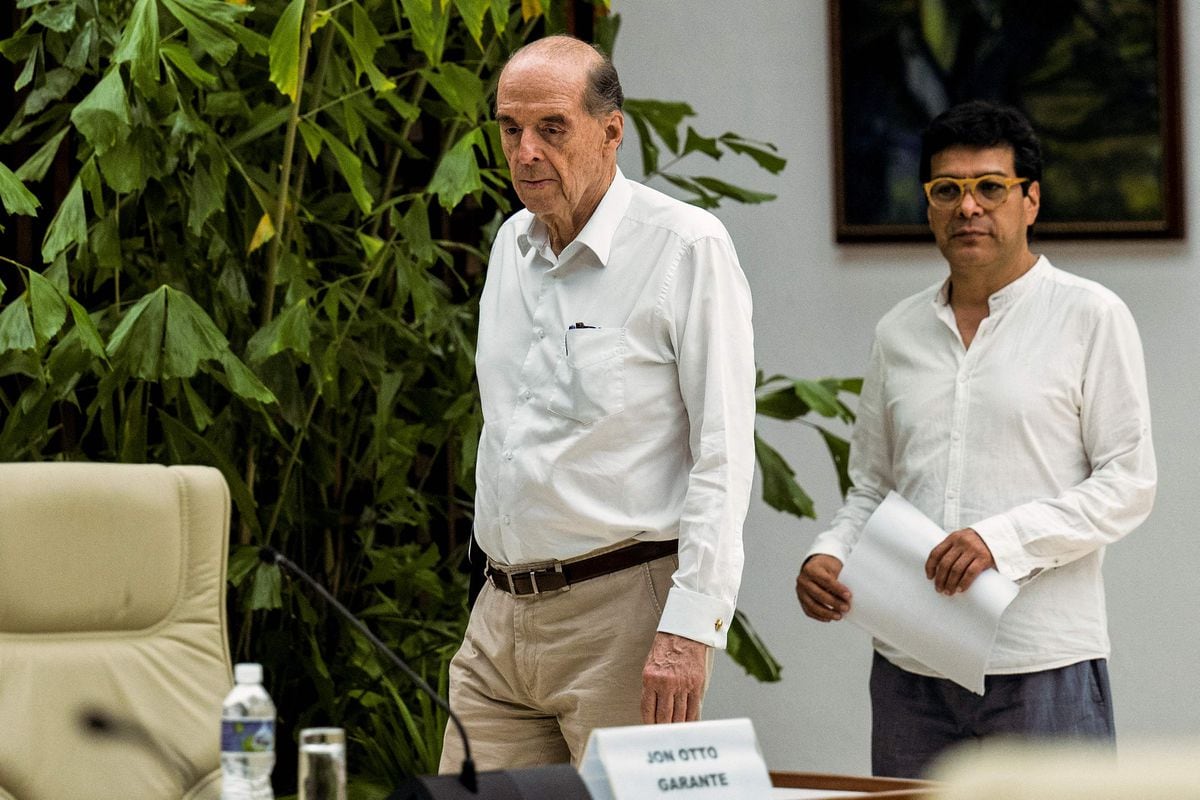
/cloudfront-eu-central-1.images.arcpublishing.com/prisa/EVSKKGOZHPTBCJL2XV22X45PVY.jpg)
/cloudfront-eu-central-1.images.arcpublishing.com/prisa/NCQFUQJJ4ZHRJLKNWPLQ2MFQR4.jpeg)
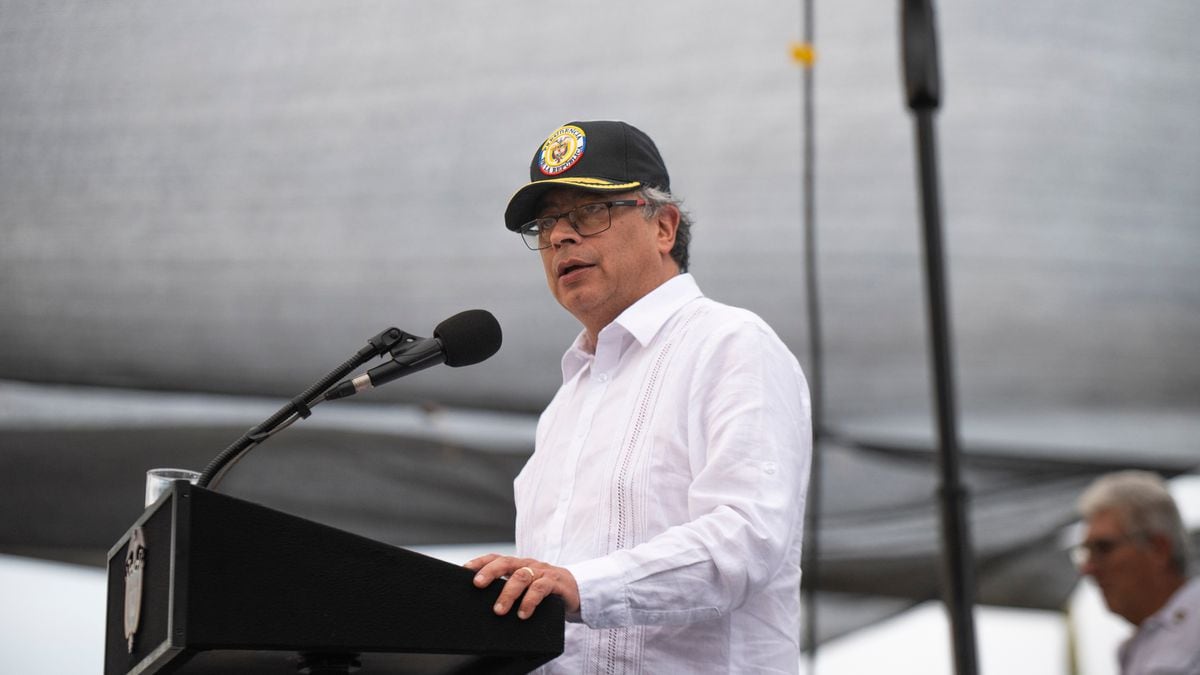
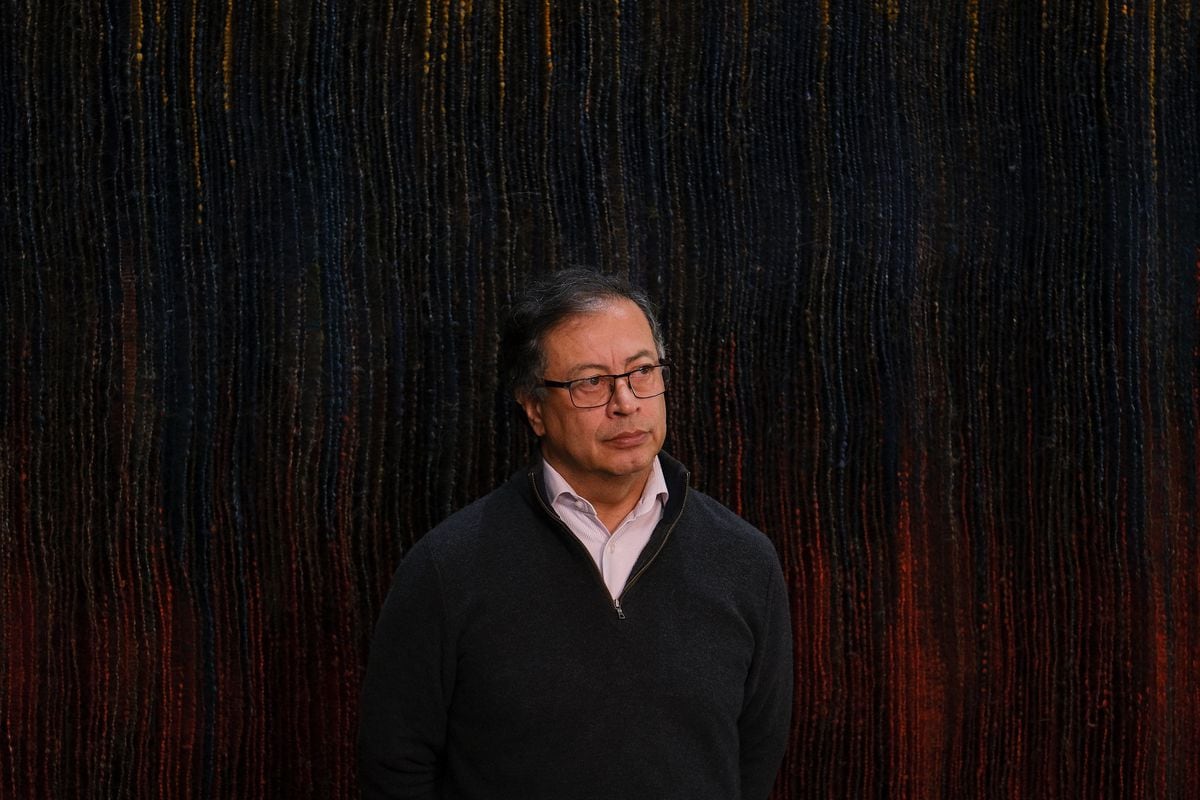
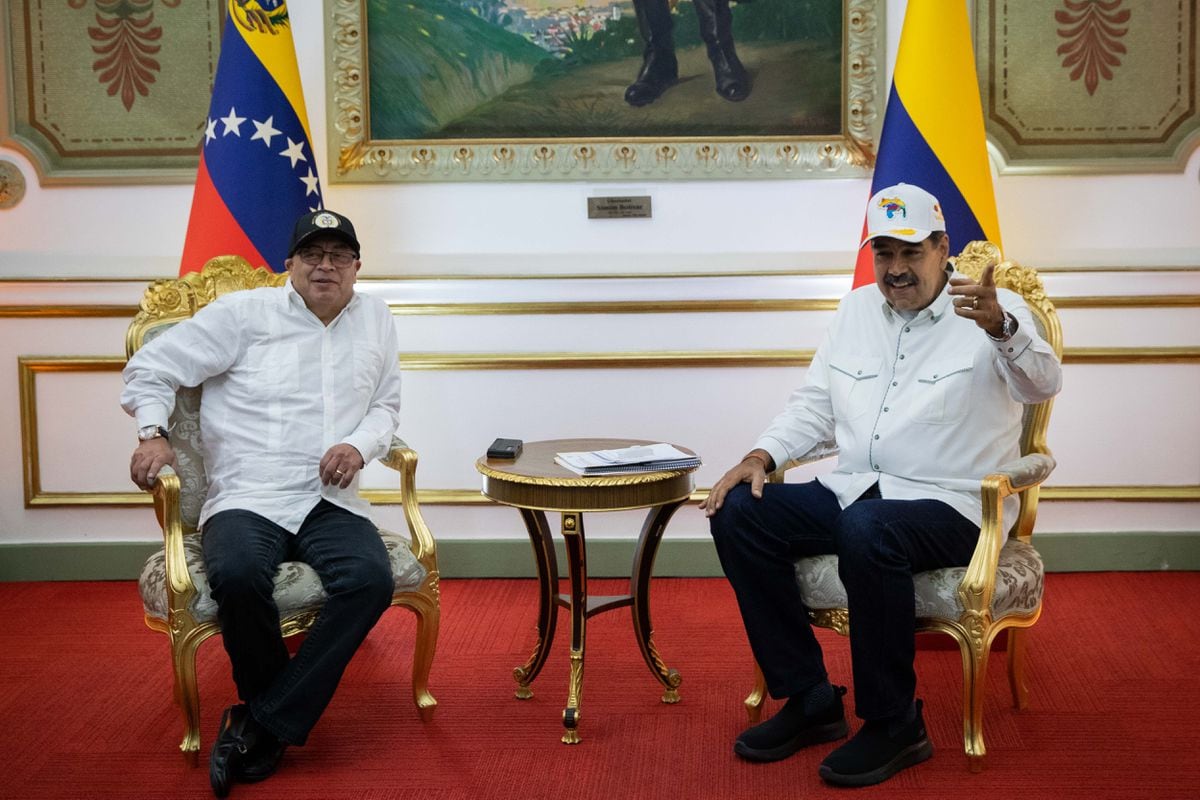

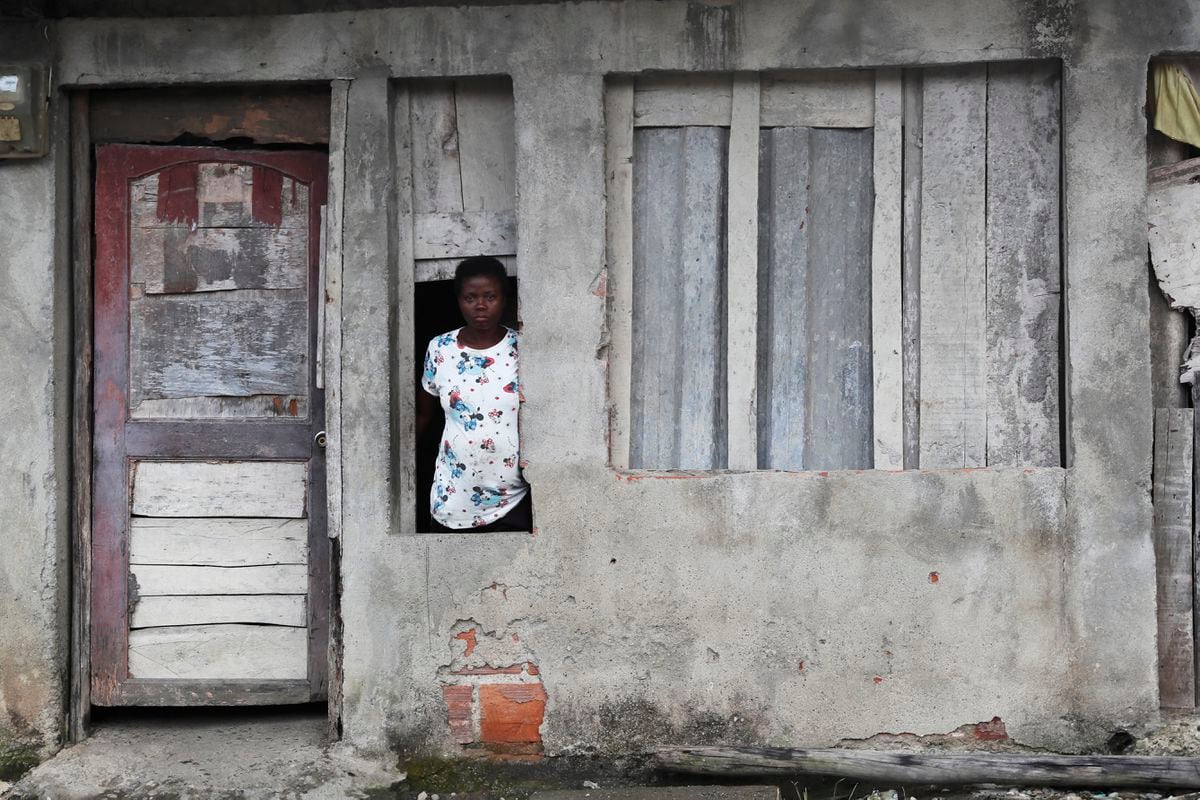



/cloudfront-eu-central-1.images.arcpublishing.com/prisa/KMEYMJKESBAZBE4MRBAM4TGHIQ.jpg)


